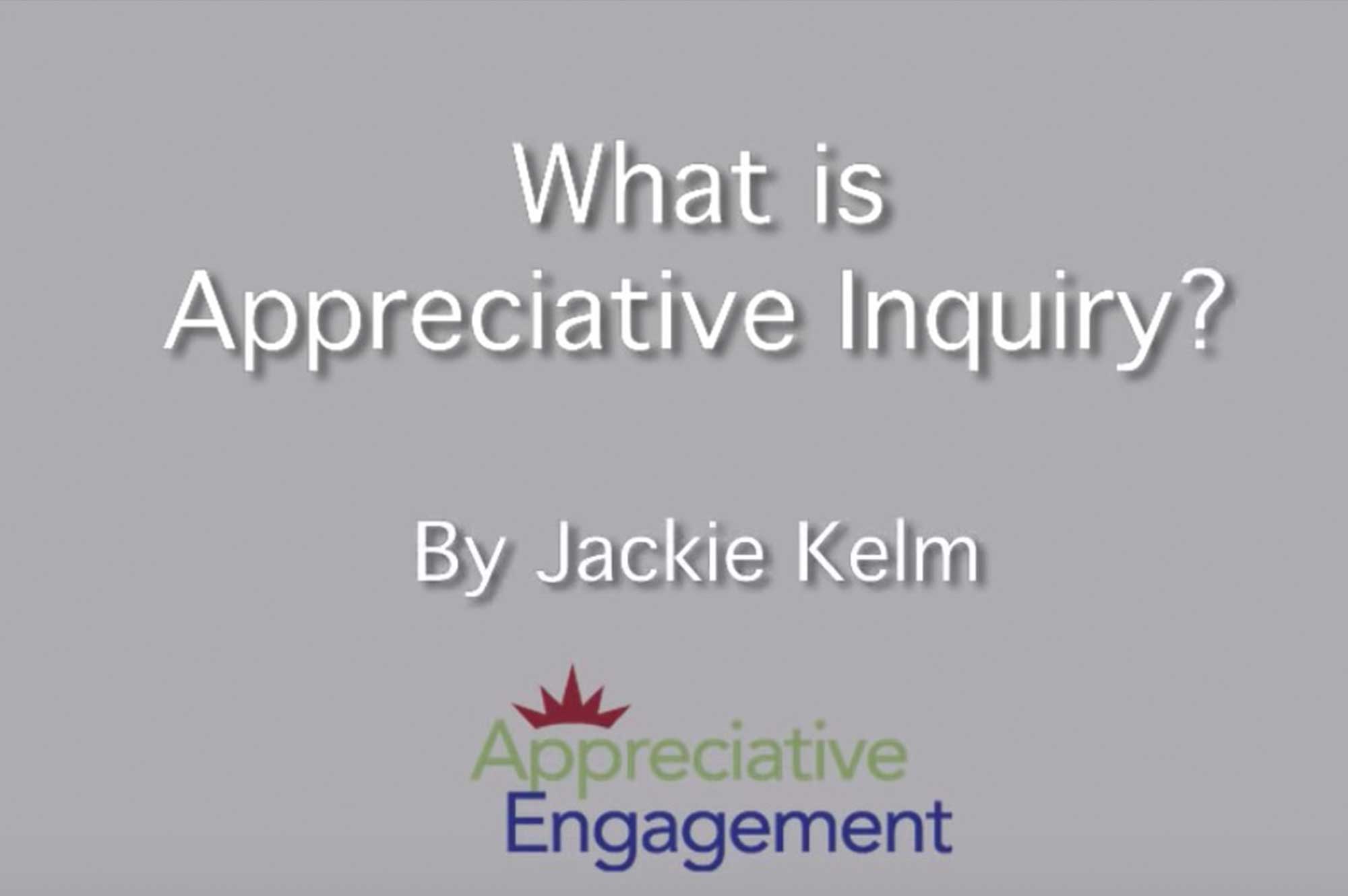Appreciative Inquiry is a collaborative, strengths-based approach to organizational change.
The concept behind Appreciative Inquiry is that organizations commonly approach change from a problem solving-perspective with a focus on “fixing what’s wrong.”
Appreciative Inquiry seeks to approach change from a strengths-based approach, assuming that each organization has a positive core of strengths. The positive core referenced in Appreciative Inquiry is made up of the values, beliefs, and capabilities of an organization when it is functioning at its best.
The Appreciative Inquiry Model has four steps to approaching organizational change:
- Discovery: determining what gives the organization life, exploring past successes and what has enabled them
- Dream: imagining potential positive futures for the organization
- Design: reaching a shared vision that the team sees as having real, positive potential
- Destiny: strategies for achieving the design are developed through individual commitment
These courses are ones recommended by B.C. Corrections to fulfill the competencies for the topic of Appreciative Inquiry.
Look here for a random selection of additional audio, video, and readings to expand an understanding of Appreciative Inquiry.


